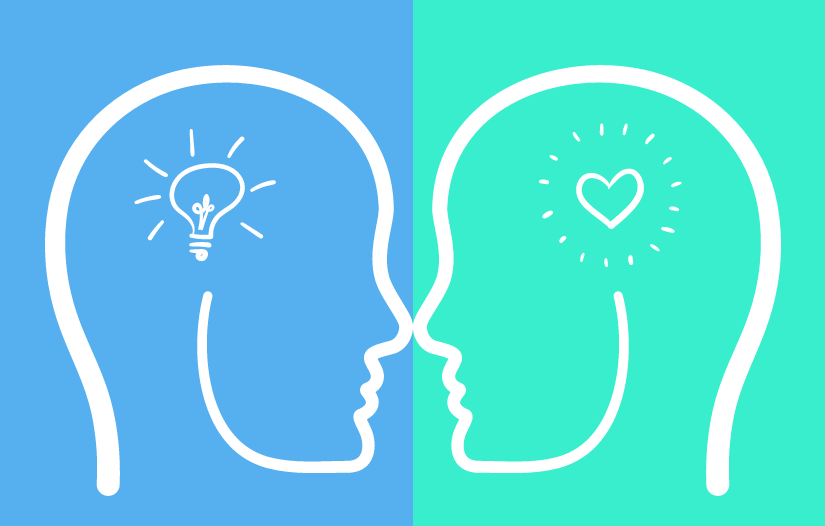Rethink the roles of affect and metacognition in learning writing
I came to the “habits of mind” table late, reluctantly, skeptically, slowly, and perhaps still only partially.
Like many conversions, especially the grudging ones, I had to follow my students to get here.
The Decoder Project and Epic Fails
Early in the course redesign process that engendered RYW, I began teaching an assignment I called the Decoder, which was loosely modeled on the early versions of a “writing theory” assignment beginning to emerge from the teaching-for-transfer work of Kathleen Yancey, Liane Robertson, and Kara Taczak. My students each gave a five-minute presentation “decoding” a writing task of any length, genre, context, or importance that they had completed recently: I asked them to explain, using some of our new language (audience, purpose, genre, discipline, revision, modality) what they had set out to do, what they had accomplished, and what, if anything, they might do differently. (You can see an updated version of this assignment, and support for other approaches noted here, in RYW Chapter 2.)
I was excited by how quickly and effectively my students could map new concepts onto prior experience, helping make visible the cognitive struggles they had encountered so that they could better scout out solutions. They were, in turn, polite about this task. But this wasn’t the kind of writing experience they wanted to talk about.
They wanted to talk about, in my engineering major Luke’s memorable phrasing, their epic fails, the most epic and epically discussable of which were failures of motivation, time management, endurance, confidence, and interest. The whole class would light up and groan sympathetically with a peer who procrastinated, who wrote up the notecards after completing the essay draft, who knew for sure how much their writing usually sucked, who was secretly terrified of presenting to a hundred people at the annual athletics banquet or reporting to a three-star general visiting the ROTC cohort.
After the first two semesters of asking them to decode only their cognitive challenges—drawing on Anne Beaufort’s categories of rhetorical knowledge, subject-matter knowledge, and process knowledge—and watching their stories of deeply felt epic fails pour into the discussions around the edges of my assignment like storm water over a levee, I experimented with adding a fourth category as an option: disposition challenges. The dams had burst, and we never went back to cognitive analysis alone.

Resistance is Futile?
And yet. I’m a left-brained, straight, cisgender, White, upper-Midwestern-Protestant-heritage woman who is a third-generation rhetoric professor: I’m massively overengineered for cognition as a primary operating system. I have had heated discussions with colleagues about the problems with foregrounding elements of affect and disposition in the college writing classroom. Sure, they’re present and often powerful in the work of a writer, I would argue, but they’re fuzzy and barely teachable; they’re not reliably measurable or thus fairly assessable; and they’re often brought into evaluative spaces in ways that are at best vague (where does one find decent parameters for openness?) and at worst racist and classist (should we talk about grit?), burdened with predetermined gender expectations (creativity? patience?) and physically or neurologically ableist (persistence, anyone?).
But the moment I defined a formal category of disposition problems as being real writing problems that my students—diverse in every possible way at our soon-to-be majority-minority university—had permission to discuss seriously, they bought more completely than they ever had before into the idea that writing was a challenge they could engage with and get better at, and they settled into a new confidence that the students around them were a community they could trust to accompany them on that journey. They could bring their whole selves and their whole stories into the classroom community, not just their worries about grammar. With their peers’ approbation, they began to acknowledge that they were not bad people or even bad writers; they were just humans facing challenges, and that gave them…hope. Listening to my students trade gleeful confessions, I could imagine Pandora’s relief as teeny, fragile Hope floated up out of the nearly empty box and made all the other escaped evils seem suddenly manageable.
Metacognition, Dispositions, and Affect in RYW
I’m a deeply rooted fan of metacognition—doesn’t that just mean more cognition? Yay!—and I have dedicated a huge amount of RYW’s real estate to making metacognitive practice nameable, teachable, practice-able, and assessable, while acknowledging the need to constantly self-check to be sure it doesn’t provide an excuse for hegemony or oppression. Research into the development of expertise across dozens of fields and professions documents how people who can think about how they learn—analyze a situation, predict the next steps, deliberately solve problems as they occur, and intentionally transfer and adapt yesterday’s experience to tomorrow’s task—are more successful than people who cannot.
Although there may seem to be an easy pathway from accepting reflective practice as fundamental to engaging fully with habits of mind, dispositions and affect remain fraught concepts for me as a faculty member. I have doubts about how well they are teachable or assessable. I have concerns about how they play out in unequal institutions of higher education. The “Focus on Equity” section of Chapter 2 was important for me to include: a confident attitude will not undo structural racism, though it may be a survival tool, and affirmative self-talk will not overcome the harm of misgendering or anti-Semitism, though it may prove a crucial coping strategy. I continue to balance the power that Carol Dweck’s “mindset” approach has in helping students let go of “writer’s block” as a dominant metaphor, while tracking the thoughtful critiques of her research.
Yet in the end I wrote Chapter 2. I wrote it because the research on self-regulation as a foundation for learning is convincing. Because I needed some ways to not mislead students about the roles that failure and retrying play in improving as writers. Because my own research showed that while I might not be able to assess dispositions like confidence or time management, I could confidently map how students experienced them to their work with rhetorical knowledge and process knowledge, elements I could assess (Reid 2017).
But I wrote it mostly because my students showed me that a book about learning to write better would be incomplete without it. I hope your students tell you their best epic fail stories, and feel thus invited into the fullness of the community of writers.
